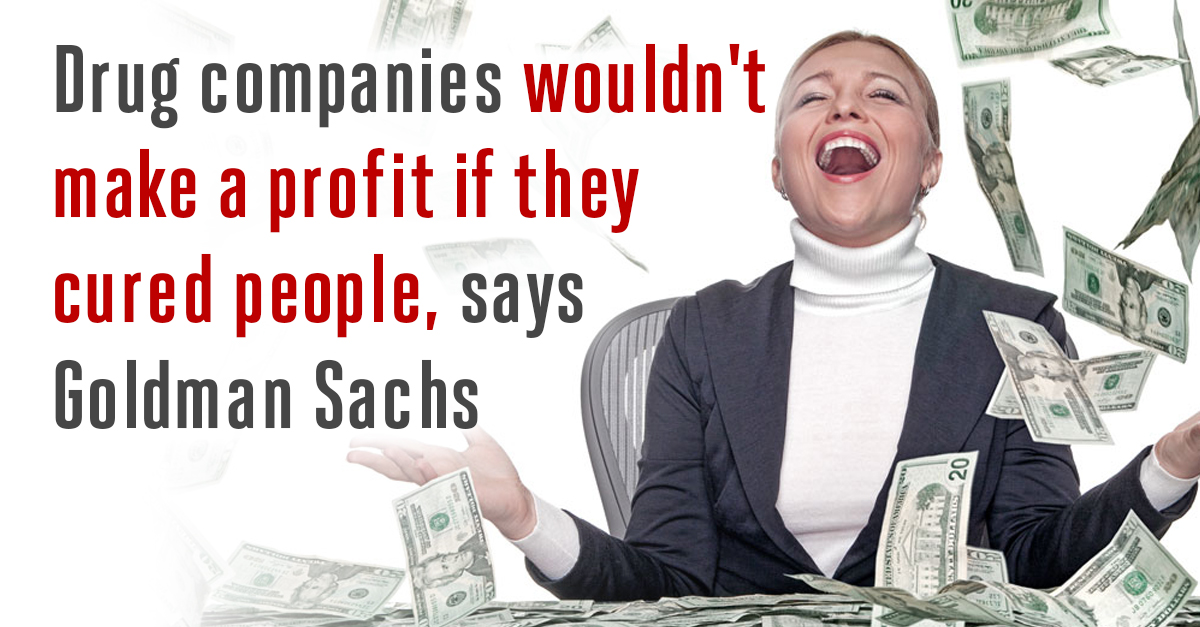W.D.D.T.Y
Drug companies would stop being profitable if their drugs actually cured people—because they would lose their market. In fact, curing people is "an unsustainable business model," says merchant bank Goldman Sachs.
The bank is hesitant about investing in the emerging biotech industry because it's just too good at curing people.
Its gene therapy, which delivers 'one-shot cures', isn't sustainable because its market of sufferers would eventually disappear, warns the bank in an analysis of the sector. "While this proposition (of quick cures) carries tremendous value for patients and society, it could represent a challenge for genome medicine developers looking for sustained cash flow," one of the bank's analysts, Salveen Richter, writes in a note to clients.
He quotes the example of Gilead Sciences whose gene therapy for hepatitis C achieved cure rates of more than 90 per cent. The company's sales in the US for the treatment peaked at $12.5bn but have been falling since. Sales are predicted to be just $4bn this year.
The company is "a case in point where the success of its hepatitis C franchise has gradually exhausted the available pool of treatable patients," Richter writes. "In the case of infectious diseases such as hepatitis C, curing existing patients also decreases the number of carriers able to transmit the virus to new patients, thus the incident pool also declines."
The bank advises the biotechs to focus on larger disease groups that continue to expand, such as haemophilia, which is growing at around 7 per cent a year, or look at diseases that have complications, such as spinal muscular atrophy (SMA), that affects the sufferer's ability to walk, eat or breathe, or to constantly innovate.

0 Comments:
Post a Comment
<< Home